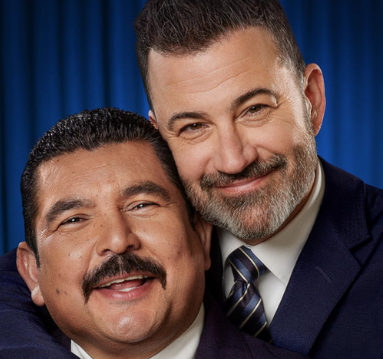A debate with no winners
On Tuesday, September 29, former Vice President Joe Biden and President Donald Trump squared off in the first presidential debate of 2020.
The first of nine debate subjects focused on the Supreme Court. In light of the passing of Justice Ruth Bader Ginsburg, President Trump nominated Judge Amy Coney Barrett to fill Ginsburg’s seat. Despite the presidential election taking place only 46 days after her passing, President Trump stated that he is still president and that “elections have consequences.”
Democrats, however, are pushing to wait until after the election to decide, with early voting underway in most states. Biden asserts that waiting to confirm a new justice would give the American people some sort of voice in the confirmation of the new nominee.
The first ten minutes of the debate were somewhat civil. The arguments were clear, and I began to know which side I was taking.
The last 80, on the other hand, were an absolute debacle.
The second topic that moderator Chris Wallace, of Fox News, introduced was the coronavirus pandemic in the United States. Biden took the floor first, using his two minutes to call out Trump’s coronavirus response that has left more than 200,000 Americans dead. Wallace followed up by juxtaposing Trump’s campaign rallies and Biden’s; the former gathering thousands of maskless Americans in large crowds, in some cases indoors, and the latter holding virtual rallies or in-person physically distanced events with limited attendance.

This is where the reckless insults, incessant name-calling, and he-said-she-said accusations began. President Trump was simply trying to get Biden to break, and, while Biden held his ground in the beginning, Trump continued to hurl insults in an attempt to derail the focus of the debate.
For instance, when the candidates were asked to give closing statements, Biden praised his late son Beau’s military service, and Trump once again used fear-mongering tactics to scare voters away from Biden. Trump dismissed Beau’s service and began making false claims about Hunter’s administrative discharge from the Navy after testing positive for cocaine use. Trump falsely claimed that Hunter was dishonorably discharged, and accused him of receiving millions of dollars from the mayor of Moscow. “(Hunter) didn’t have a job until you became vice president,” Trump said to Biden.
The first debate of the 2020 campaign was an example of a debate not won by either candidate.
So, what is a debate victory, exactly, and what constitutes one? The definition of a debate victory is simple: the candidate wins over enough voters to gain an edge in the election.
However, according to Monmouth University polling, just three percent of people surveyed said they were very likely to hear something from either candidate that would influence their vote; 10 percent said it is somewhat likely to happen; and 87 percent said it is not likely. Thus, to sway voters to their side, a candidate essentially needs to have a phenomenal performance. But, that is not extremely difficult, if given some thought.
There are three components to a victory in the context of a presidential debate: strategy, persuasiveness, and, a culmination of the two, resonance. A candidate must come into the debate with a clear strategy and make arguments assertively, both of which must resonate with the American people.
Biden gets resonance points for using his time to argue not only against Trump, but directly to the American people (with some humor to deflect Trump’s accusations), he eventually let his guard down when things got tense. For example, when pressed by Trump on packing the Supreme Court, he exclaimed “will you shut up, man?”
Evidently, Trump gained some resonance points through insults and fear-mongering properly strategized to attempt to turn undecided voters away from Biden. However, the line has to be drawn after a certain point. Voters will start to wonder, “what exactly is his argument?”
The September 29 debate, evidence of the stark contrast between a debater and a playground bully, was proof that we need to hear a third voice. A lesser known candidate from a third party would offer new perspectives to consider for both Biden and Trump, as well as the population of undecided voters.
With a candidate from a lesser-known party onstage, both Biden and Trump would need to take time to process new ideas brought forth by the third candidate before offering an assertive rebuttal. This would not only make the debates more civil for the undecided voters, but it would offer new insights on ideas the voter is torn on, allowing him or her to determine a clear candidate to support.
Having a third-party candidate onstage would also denounce the toxic idea that a vote for a third-party candidate is a vote for Trump, a slogan far-left voters use to call out the urgency of voting blue, given the chances of a third party taking down Trump in 2020. Even this election year, a vote for a third party should not fill the voters of this constitutional republic with guilt.
A third-party candidate is, in a sense, common ground for democrats and republicans. The civility he or she would bring to the table in debates would be appealing to undecided voters, giving the candidates a chance to actually express their ideas and contemplate the opposition with respect to the “new guy” onstage. The debates would actually influence the voter’s decision as they were meant to do, and after a while, we might be saying three names on election day.
Best-case scenario, we’ll transition ourselves away from muting mics.





